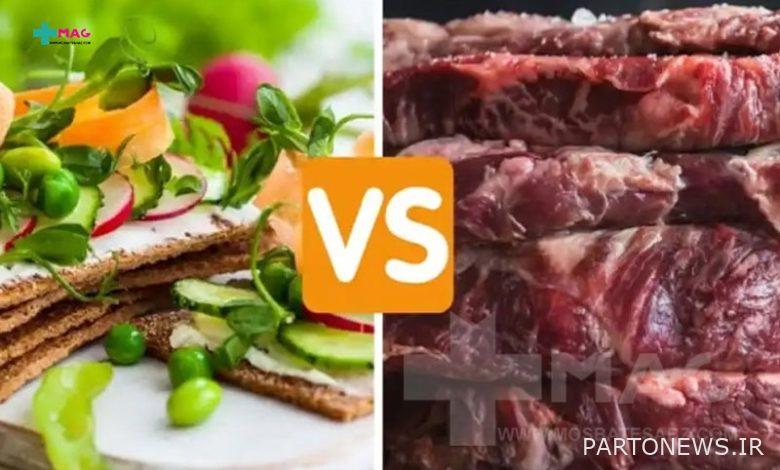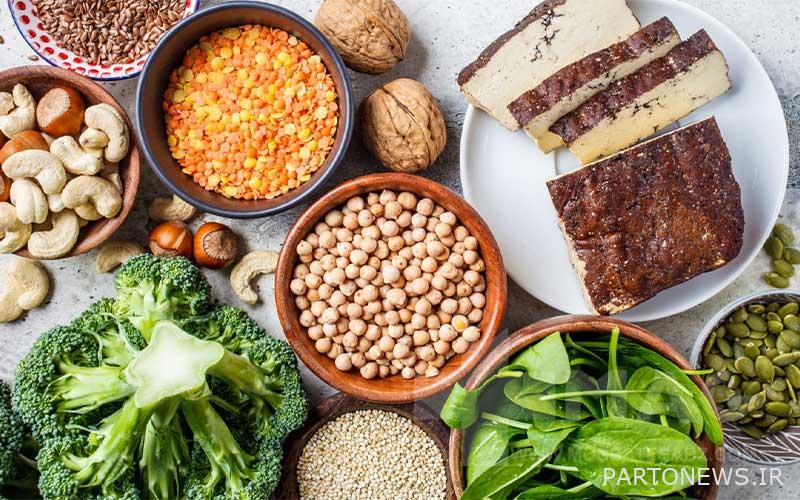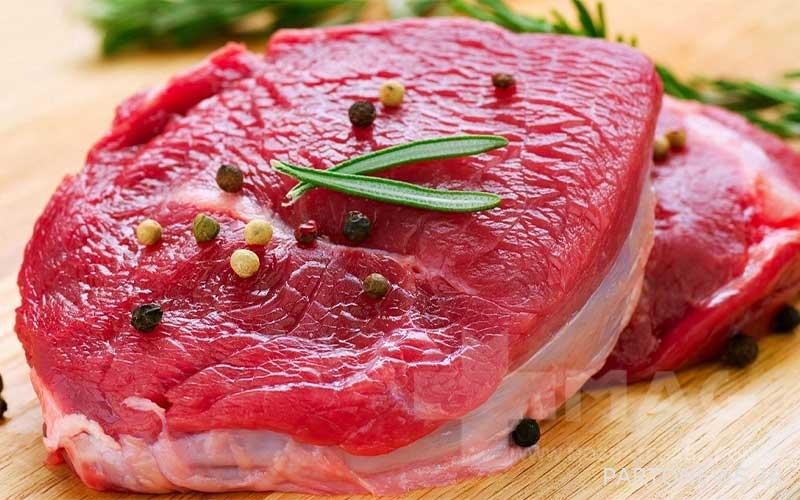The difference between vegetable protein and animal protein

The difference between a plant protein supplement and an animal protein supplement, as the name implies, is in the type of compounds that make up each type of protein supplement. Beef milk or beef is commonly used to make animal protein supplements. Animal protein supplements include protein, casein and beef. The most common plant proteins are chickpeas, soy, hemp and rice. Dietary supplements from quality protein powder from animal or plant sources can increase muscle function, boost post-workout recovery, promote a healthy metabolism, support weight loss, and help strengthen the body. There are different types of vegetable proteins, and some brands combine different amounts of each to produce vegetable powders that provide a healthy blend of fats and amino acids.
What we read in this article
What is protein and how is it made?
Let’s start with some basics.
- Protein is an essential macronutrient along with fat, carbohydrates and water.
- Many of us get a lot of protein every day, even if we have a mostly plant-based diet.
- You do not need to eat animal foods to get enough protein.
Your body breaks down all the protein you eat into 20 separate amino acids. It then uses those amino acids to regenerate tissues, organs and throughout your body. Of the 20 amino acids used to manage your body, 9 are essential amino acids – meaning you should get them through your diet. The rest can be made in the body.
The most important difference between plant protein and animal protein
The most important difference between plant protein and animal protein is their amino acid composition. Animal proteins (meat, dairy, eggs, or supplements made from them) provide all nine essential amino acids. Plant proteins (soy, legumes, nuts, seeds, grains, and vegetables) do not contain one or more of these essential acids. However, what one plant protein lacks, another probably has. This means that as long as you get a lot of variety in the type of protein you eat, it will not be a problem.
The best time to eat protein in the diet
Even if you are probably getting your daily protein needs through your diet, you are likely to get most of it at dinner. If your breakfast is high in carbohydrates (fruits, cereals, breads and pastries), your lunch is soup or salad, and your dinner is where you make up for your protein, your protein intake is unbalanced. Including a good source of protein in every meal helps stabilize blood sugar and insulin levels, as well as stimulating muscle synthesis. Muscle tissue can use 20-30 grams of protein 3-4 times a day for repair and growth. If you receive too little, it may not be enough to maintain or grow your muscles. Pay attention to this point because building muscle is not just for bodybuilders! In addition, with age, muscle tissue breaks down faster.
Vegetable proteins are usually made from rice, peas, soybeans, or seeds such as hemp, pumpkin, or chia, and often contain fewer unwanted additives than animal proteins. With the exception of soy or hemp, single plant proteins do not provide all the essential amino acids. For example, pea protein lacks the amino acid methionine, but is high in lysine. Rice protein, on the other hand, is high in methionine but not lysine.
The importance of protein intake
Less muscle mass means slower metabolism. This is the main reason why women gain weight in the middle of life. More muscle also helps reduce insulin resistance – a major risk factor for diabetes. As muscle breakdown continues into old age, it increases the risk of weight gain and diabetes, as well as osteoporosis. Eating more protein alone does not increase muscle growth, but exercise, especially strength training with 20 to 30 grams of protein every few hours, improves muscle synthesis. Ideally, you should get it from foods such as eggs, meat, dairy, organic soy or legumes. You will get not only protein but also other nutrients from these foods. But if you do not eat those foods evenly throughout the day, this is where animal or vegetable protein supplements come in handy.
What to look for in any protein supplement
No matter what type of protein supplement you use, we always recommend choosing a supplement that is organic and with the least amount of chemicals and preservatives possible. Read the label of the ingredients of protein supplements and if you do not know artificial flavors, sweeteners, colors or substances; You see, do not buy it. Keep in mind that some protein supplements are a perfect substitute for a meal, so they are higher in calories and include carbohydrates and fats.
What is plant protein?
This protein is made from plant sources and if it has the same amount of animal protein; It is easier to absorb. Plant protein is less absorbed than animal protein; Therefore, vegetarians and people who do not eat animal foods; They need to increase their protein intake.
Benefits of vegetable protein
If you avoid dairy, eggs or meat, or want to eliminate these from your diet, vegetable protein powders are a good option. Many people digest plant proteins more easily and generally feel better when they eliminate dairy. Plant proteins also provide some extra fiber.
Disadvantages of vegetable protein
The biggest downside to plant protein supplements is the taste and texture. Many of them taste like “grass or grass” because they are made from plants. For this reason, many people find that they really need to add a lot of ingredients (such as sweeteners, fruits, butter, nuts, etc.) to make it taste better. Vegetable protein powders usually do not dissolve well in liquid, so they can become like gypsum or clods. For best results, use a blender. Mixers are inexpensive and easy to clean. In addition, we do not recommend soy-based proteins, as they are almost always made from GMO (genetically engineered) soy. The makers also do not talk about whether soy (especially in supplement form) can cause a hormonal disorder. Complete and organic tofu and tempeh are much healthier options.
Related Posts
The result of research on the difference between herbal supplements and animal supplements
You may have heard of a 2018 study by the Clean Label Project Consumer Monitoring Group. They tested 134 different protein supplements and found that most plant products had higher levels of heavy metals such as arsenic, lead and mercury than animal proteins. But here’s the thing: Plant protein comes from plants that absorb nutrients (and toxins) from what’s in the soil and water. This is a great example of why it is important not to rely on any food to choose and consume your entire diet and aim for variety!
What is animal protein?
The most common animal protein supplements are made from either casein (milk-based), eggs, or collagen (bone-based). With the exception of collagen, all animal proteins are complete, so you will get all your essential amino acids. Animal protein supplements taste better and are easier to mix and mix than plant protein supplements.
 Types of animal proteins
Types of animal proteins
When we consume protein, they break down into amino acids. Animal proteins are more complete than plant proteins.
His protein
Whey-derived whey supplement is valuable because of its wide range of amino acids, including branched-chain amino acids that stimulate muscle synthesis. It is also absorbed very quickly, so it is a great post-workout choice. Research studies show that he is preferred to other forms of protein for muscle synthesis, especially after exercise.
Casein protein
Casein is also extracted from milk and provides the full range of amino acids. However, this type of protein is absorbed more slowly and tends to stay in your body longer. It may not strengthen your muscles immediately after exercise, but it can help reduce appetite for longer. It is good to use as a filler between meals or snacks before bed.
Egg white protein
Egg white protein is a good option for those who are sensitive to dairy. It has a neutral and good taste. However, while helping you achieve your protein goals, research shows that it is not very effective in stimulating muscle growth.
Collagen protein
Collagen is the newest protein supplement on the market. It is usually made of bone and cartilage. It is not a complete protein, but it is rich in amino acids that repair and repair skin and connective tissue. Hence, it is claimed that collagen is beneficial for the skin, hair, nails, joints and even the elasticity of blood vessels.
Negative points of animal protein supplement
Just like plant protein supplements, animal protein supplements have their downsides. Obviously, if you are on a vegetarian diet, they are not your choice. The biggest negative risk factor is an allergy to eggs or dairy proteins. If you are allergic to the proteins in these foods, you should not use protein powders derived from them. Lactose intolerance is different from milk allergy. Lactose is a carbohydrate found in milk, so protein powders should be low in lactose, but if you are very sensitive, you may want to avoid them. Finally, it is important to know that his and casein powders can be in isolation, which is about 90 to 95% protein, or in the form of concentrate, which is only 80% protein, and the rest of the product contains carbohydrates (such as lactose) and fat.
last word
In this article, we looked at the differences between plant and animal proteins and examined them well. The most important thing about animal protein supplements was that they have all the amino acids the body needs, are more complete than plant protein supplements, have better taste and texture, and blend well. Vegetarians and people who are allergic to dairy products and eggs; They use plant protein supplements. Each of the animal and plant protein supplements has different advantages and disadvantages, which in this article we tried to inform you well so that you have a better choice. Now your choice is a vegetable or animal protein supplement?
Please rate this article
[مجموع: ۰ میانگین: ۰]


 Types of animal proteins
Types of animal proteins